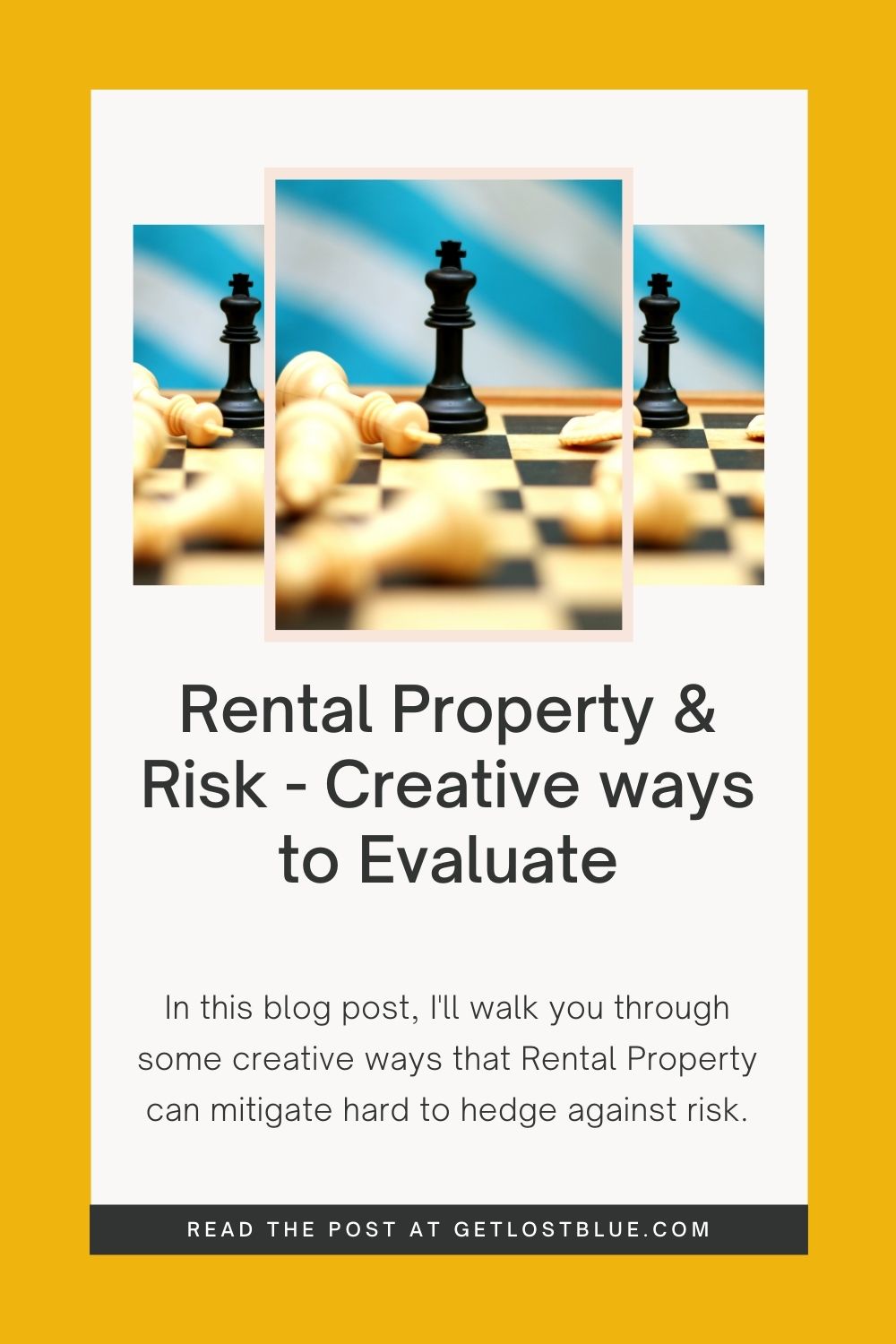If you’re considering investing in rental property, you’re probably struggling with how to evaluate risk and if its a good investment. You’ve probably come across things like the 1% Rule, or the Four Square Method to crunch the numbers. Whatever rubric you use, what you’re trying to do is evaluate the rewards and risks. Income is a big part of the reward calculation, but not everything. Rental property can also reward by mitigating some risks that are more difficult to quantify or hedge against.

While having rental property has its own inherent risks that should be carefully considered, here are some less traditional but valuable protections it can provide.
You can LIVE in it!
Everyone needs a place to live, including you! Investing in rental real estate can give you options for hacking your own housing costs. You can also use rental property to hedge against housing costs becoming more than you can afford.

Lots of things could happen which leave you in need of more affordable housing; a relationship ending, job loss, health problem, etc. The fact that you could, or may need to live in it one day, can factor into your evaluation of a rental property. Is it a place you could or would want to live? How much would living in it actually cost vs what you’re paying now? Will this make you sleep easier, be less afraid of losing a job or a partner? All hard to quantify, but worthy factors to consider.
Having an affordable housing option for yourself may just save you from financial ruin. For example, some day you find yourself in a tough situation. You can either move to an affordable home you already have, or you can withdraw from a IRA and pay taxes and penalty. Well….at least you have options! It could mean all the difference in your long-term financial success.
You can PROVIDE housing!

Providing for family or dependents can be a major stress when considering how to structure your finances. It can seem like an insurmountable barrier to your financial independence. Perhaps you have aging parents that you fear will need assistance, or have concerns about “launching” your children. A well considered rental property could help minimize the risk of these possible situations. Depending at what point you are in your career and financial journey, it may be easier to lose income from a rental property, than provide direct financial assistance.
The cost for assisted living or nursing homes can be pretty outrageous, and predicted to only get worse. When considering rental property, you could evaluate if it could be useful in caring for aging parents. A single story home with HOA provided maintenance, or a duplex where a caregiver might live next door, could be good options for helping parents as they move towards needing more assistance.
Likewise with children that need some assistance, from time to time. It might be more advantageous to be able to provide low cost housing to them, than providing cash. To this end, maybe you consider a multi-family in a college town, or small starter home in an economically up and coming area. Note, it is hard to evict your children, but at least they won’t be in your own home 🙂
You can BARTER with it!

Okay, renting a property for cash is already bartering….but you can get more creative with it, if need be. Depending on the circumstances, you may be in a better position to forego cash income rather than raise cash. Whenever your money is tied up somewhere that is difficult to get to, or would cause a penalty, you might consider a barter.
Let’s say you’re older, and a lot of your assets are tied up in property you would have to sell in order to get to your funds (there are reverse mortgages, but that’s for another day). The sale might cause you a large capital gain, with depreciation repayment, if it’s a rental property. In this case, you’re likely better off trading away your rental income for services rather than generate the big tax liability. Now, like all things, there are possible tax implications with trading for rent, as well. CYA note, always consult your tax advisor!
Property management or handy-person work are some commonly traded services. But you don’t have to limit yourself to those! Care taking services for you or a loved one are definitely a good option. Nanny could live next door, for example. If you’re an entrepreneur, or trying to become one, you may need marketing help, accounting help….you probably need a lot of help 🙂 Don’t forget to consider your rental property as an asset to leverage in getting you what you need.
Sort of Insurance?
Purchasing properties that could serve as housing for yourself, or loved ones if need be, can be seen as a sort of a form of insurance. However, its insurance that will hopefully make you money most of the time, rather than cost you. You can buy insurance for some of the things that having rental property could assist with, but some of the things you can’t. You can’t really buy “boomerang” child, or “I broke up with my partner” insurance. And as we know, even if we have insurance for a specific purpose, it often doesn’t cover all you need.

If you do need to use it in the one ways discussed above, you will have to factor in how to still pay for the properties rather than charging for it. However, if done correctly, you’re likely to be paying a fraction of what it might cost you otherwise. And again, it’s an insurance policy that has been paying you, up until you use it!
Flexibility is Resilience
As you can see, there are several ways a well considered rental property can add flexibility to your finances and minimize risk. All ways in which a property could add to your overall resilience should be considered in evaluating the appropriateness of the investment for you.
Comment below about how you factor these things into, or plan to factor into your rental property decision making!
Want More Blue?
Check out the Coaching Services tab to find out how to work with me.
